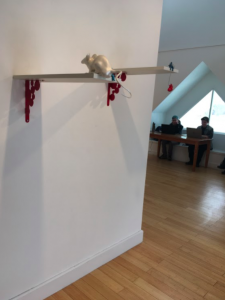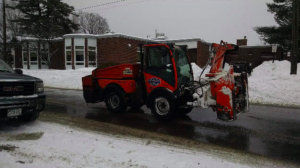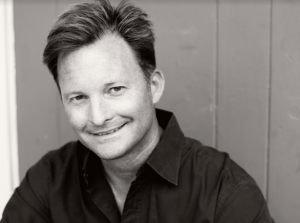Feb 16, 2018 | News |
By Dale J Rappaneau Jr Contributing Writer
Transfer students, regardless of age or background, are currently required to fulfill UMF’s mandatory PHE course in order to graduate, which has some transfer students feeling frustrated and marginalized.
Andrea Swiedom, a 26-year-old Creative Writing major who commutes an hour to and from UMF, says she was told during enrollment that the PHE course was not required for transfer students. “When my advisor, Jeff [Thomson], told me it was required, I thought he must have had it wrong,” said Swiedom. “I thought it was a joke or that Jeff didn’t know, because I remember being told transfer students didn’t have to take it.”
Swiedom added, “I think the requirement makes sense for younger students who don’t have a good routine established or get too nervous to get into the gym, but common sense should be implemented into the system.”
Michael J Angelides, transfer counselor for UMF, said when he works with transfer students who are concerned about PHE, he tells them it is a “required class for all students” and “a great way to force some students out of their comfort zone and get them familiar and comfortable with the FRC.” He added that, in the past, “it’s entirely possible that I didn’t grasp the requirement for transfers and misrepresented the requirement to some of them early in my role as transfer counselor.”
Alison Thayer, coordinator of first-year collegiate physical fitness, stands behind the college’s requirement for all students, traditional and transfer alike, to take the mandatory PHE course. “Even transfers will benefit with becoming familiar with the Fitness and Recreation Center,” she said. “They’ll get to know others who exercise, maybe find a study partner—and being active benefits everyone, regardless of age.” Thayer later added, “ I can certainly see how the PHE course could be stressful for the person who commutes, has kids, and a full-time job. I understand a 30-year-old isn’t going to want to be in a class with 20-year-olds, which is why we try to be flexible, just come to me and let’s talk.”
Part of that flexibility is being demonstrated during this semester by students like Swiedom, who are fulfilling their PHE requirement through a Mainely Outdoors learn-to-ski program. “That’s a totally new idea,” said Thayer, who credited adjunct professor Scott Hoisington for spearheading the program’s implementation. “They take about twenty or thirty students and twice a week they learn to ski on Titcomb, with a third day attending the regular PHE class. We want our students to learn physical activity skills that they’ll take with them after graduation, and this is one example.”
Although appreciative that the learn-to-ski program is fulfilling the PHE requirement, Swiedom said she “would have learned to ski regardless of the PHE credit,” and still feels the requirement for transfers to take the PHE course is less beneficial and more “bureaucratic nonsense.” Thayer, on the other hand, is thankful for having taken the PHE course when she attended UMF, for it inspired her to learn how to cross-country ski, a passion she still enjoys today.
Feb 16, 2018 | News |
By Aspen Miller Contributing Writer
The Rainbow League recently traveled to Washington, D.C. to attend the Creating Change conference, an event sponsored by the National LGBTQ Task Force. The conference, a four-day event, focused primarily on activism and intersectionality, with the intent to help teach people in the community how to help others when they don’t share the same struggles.
Vice President Cheyenne Candow said, “It was a super cool educational opportunity, and a good professional development opportunity, especially for those going into [jobs involving the community], because it’s like a trial run.”
Candow explained that while executive board members held priority, the club were able to bring a couple general members this year, with the hope that each year they travel, the club will be able to bring more members along. These members were selected by a lottery system, provided they regularly attended meetings.
One of the members selected was Sophomore Julia Allen, who was excited about the experience. “Going to a specifically LGBT event was something I’d never been able to do before,” Allen said.
The experience proved to be positive. When asked what should be brought back to the community from the conference, Allen said, “Definitely the amount of respect and appreciation everyone had for each other. Literally everyone was thought of when planning events and it was such a productive and thoughtful work environment.”
President Dan Keller shared similar sentiments; “The level of inclusiveness and love was staggering. It would make it all worth it to have that amount of acceptance on campus. You introduce yourself with your pronouns and everyone is on board.”
Candow shared that “there are a lot of things I’m eager to share with the club, and eager to use myself.” One opportunity Candow is excited about is possibly bringing public speaker Aneesah Smith to campus. Candow found Smith’s session on allyship and accompliceship enlightening.
Smith encouraged Candow and others at the conference to be supportive of minorities within the community beyond when it is convenient for them, and give minorities in the community space to speak out.
Outside of panels, attendees at the conference had the opportunity to meet individuals in the LGBT community from across the nation. Keller said, “There were trans activists and lawyers. I met someone who was an activist for ‘No Pride. No Justice.’ who climbed a local tower and unfurled a banner.”
Additionally, Candow mentioned that there were suites dedicated to many sections of the LGBT community. An Aromantic/Asexual suite was created by people in that community when they were not initially provided with one, something the conference says will be provided next year. For more information about the Rainbow League, you can attend one of their meetings on Mondays at 7 p.m. in Room 001 of the Education Center.

Feb 16, 2018 | News |
By Kristen Hill Contributing Writer
UMF Art faculty are working together to show the art they create outside of the classroom in a show called “Rough Drafts”, which will display their different perspectives about the contemporary world.

‘Scrap and Mire’ Small objects teeter on the edges of their ledges in Katrazyna Randall’s piece. (Photo by Eryn Finnegan)
Artists in the show include professors Ann Bartges, Tom Jessen, Dawn Nye, Elizabeth Olbert, Jesse Potts, Katrazyna Randall and Barbara Sullivan. A variety of paintings, drawings and sculptures are currently on display in the Emery Community Arts Center as well as the UMF Art Gallery.
Elizabeth Olbert created a piece called “The Part Played by Labor in the Transition from Bird to Man.” She says the piece is “a play on Friedrich Engles’ The Part Played by Labor in the Transition from Ape to Man, an important Marxist text from 1876.”
Olbert uses a surrealist technique called soufflage where paint is blown to reveal an image. Rather than using paint, Olbert decided to use coffee on the piece. “You know me, I love coffee, it had to be a part of my piece,” Olbert said. She will be displaying three drawings that include this technique.
The inspiration for this piece came from fellow artist and professor Katrazyna Randall. “I have been talking with Kate about nature and design for probably two years now,” Olbert said.
Randall’s piece uses a surrealist perspective on consumerism and its effect on our environment. The piece is made with dull, everyday objects to represent flora and fauna, creating an emphasis on the impact we have on our environment and how a lot of nature is becoming a thing of the past. Randall’s love for painting landscapes and nature shows how nature has become unimportant and is losing meaning to many people. In Randall’s view, nature has to be nurtured and the piece shows neglect along with the rise in consumerism and plastic.

‘Nasty Maine Women Artists’ Barbara Sullivan’s tribute to Maine woman artists. (Photo by Eryn Finnegan)
Jesse Potts, another member of the Art faculty, combines sculpture and photos in his installation. Potts built the piece inside the gallery, which entailed a lot of labor. Power tools, hammers and many other building supplies were used. Not only were these tools used to put the piece together, they are included as a part of the sculpture.
Potts wanted to emphasize different perspectives on what home means to people. Potts’ piece is created in a way such that people from different backgrounds can connect to the piece and think about what home means to them.
Barbara Sullivan gained inspiration for a series of portraits when President Trump called Hillary Clinton a “nasty woman.” Sullivan used oil paints to create portraits of more than fifty Maine women who are “strong and nasty women.” Sullivan knows all of the women personally and wanted to portray how powerful they are, as well as their commitment to their art and writing.

‘Arc’ The aluminum arc by Pott’s towers over viewers. (Photo by Eryn Finnegan)
All of the artists in this show create art regularly and each installment will add a different feel to the show. Olbert said, “The artists for this show are well chosen. It is a very eclectic group so there will be a wide variety of pieces. At such a small school you would expect people to be fairly similar, but we are lucky to have such a unique group of artists.”
Many students only know their teachers through what is taught in their classes. This exhibition provides students an opportunity to see their teacher’s abilities in a different light.
The show is located in both the Emery Community Art Center and the UMF art gallery and is open until March 9. It is free and open to the public throughout this time.

Feb 16, 2018 | News |
By Richard Southard Contributing Writer

UMF facilities maintenance removing snow on campus after two sudden storms. (Photo by Emily Mokler)
Students and professors alike have started preparing for winter class cancellations, after a winter storm at the beginning of the semester brought a late start to many classes. With more predictions of snowy weather, their effects on weekly schedules may become apparent.
English Professor Christine Darrohn said, “[The weather] can be unpredictable.” The effects of class cancellations can vary, depending on the class and its workload. “It depends on a few different factors such as what days are they affecting, and if they are hitting the same classes,” Darrohn said.
Darrohn mentioned that, in the case of literature courses, snow days can result in assignments being more compressed. “It can sometimes be hard to combine two classes worth of reading into a single day. But it is Maine, and I try to prepare for it as best as I can.”
English Professor Michael Johnson prepares for snow days well in advance. “Snow days and cancellations just seem to come with living in Maine,” Johnson said. “I always expect that they will happen.” Johnson alters his schedule before the semester begins, in order to be more flexible during the unpredictable weather. “I plan accordingly,” Johnson said, “either by building an open day or two in the syllabus, or already having in mind what to cut or combine if need be.”
For students, the feelings around snow days are rather mixed. Third-year Education major Nate Red stated that snow days are more negative in excess. “You get some time to catch up, but you’re losing time to learn,” Red said. Red expressed that having only a few snow days are “super positive”, as they give some chance to relieve some stress. “Before high-school, snow days were always fun, but after then, it’s a bit different.”
As an educator, Red has also experienced the teacher’s perspective to snow days. “It’s a day you lose to teach kids,” Red said. “When you’re looking to go into teaching, that’s what you want to do, and cancelled classes affect that.” Bryce Neal, a fourth-year Geology major, had a similar feeling. “I’m paying for classes, so I’m missing something I paid for,” Neal said. Overall, a class cancellation can reduce some of the workload for the day, but can sometimes increase it. “I try to make them productive”, Neal said.
Despite the negative effects snow storms can have on schedules, it can leave room for some leisurely activities. “Snow days do allow me to try some different things,” Neal said. “Sometimes I like to ski in the roads.”
As the Spring semester continues with two cancellations already, both students and professors expect for more snow and cancelled classes, but just how many is unsure. “I’m sure there will be more,” Neal said. “At least two or three more.”

Feb 16, 2018 | News |
By Willy Doehring Contributing Writer

Author Christopher Bakken. (Photo Courtesy of Christopher Bakken)
Writer and poet Christopher Bakken will visit UMF to read from his work as the semester’s first installment of the Visiting Writers series, organized and hosted by the Creative Writing department.
Bakken is currently the chair of the English department at Allegheny College in Meadville, Pennsylvania. He has a Ph.D. in Literature and Creative Writing. Bakken describes himself as “a Swiss-Norwegian hockey-playing hillbilly from rural Wisconsin who accidently fell in love with Greece,” giving much more insight into both his personal background and into his writing.
However accidental it was, Bakken’s love of Greece is reflected in his work. In his non-fiction book Honey, Olives and Octopus: Adventures at the Greek Table Bakken travels Greece to find the eight elements of the Greek table and explores the traditional ways that each of these elements are produced— among other things.

The cover of Bakken’s latest book ‘Honey, Olives, Octopus’ (Photo Courtesy of Christopher Bakken)
“The chapters meander along the goat path, covering a lot of territory that has little to do with Greek cuisine,” said Bakken. “By which I mean to say my book combines elements of memoir, travel writing, food pornography, historical musing, and action-adventure narrative.”
Professor Jeffrey Thomson of UMF’s Creative Writing program is the primary organizer of the Visiting Writers series and was able to work with Bakken to organize the upcoming reading after another author canceled. The first reading was scheduled for February 15 and would have featured non-fiction writer Stephen Elliot, who was forced to cancel on short notice.
Thomson was unavailable for interview regarding the matter, but Bakken was unfazed when he learned he was replacing Elliot. “I had no idea, nor does it matter to me at all,” Bakken said.
Bakken plans to read primarily from Honey, Olives, Octopus when he visits UMF, but he also recently published his third book of poetry called Eternity and Oranges. Bakken describes the book as being “full of spooky ghost poems,” departing a bit from his focus on Greece. Bakken’s reading will be on February 22nd at 7:30 p.m. in the Landing.





